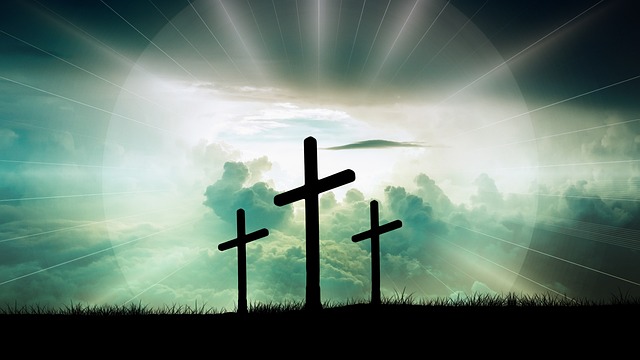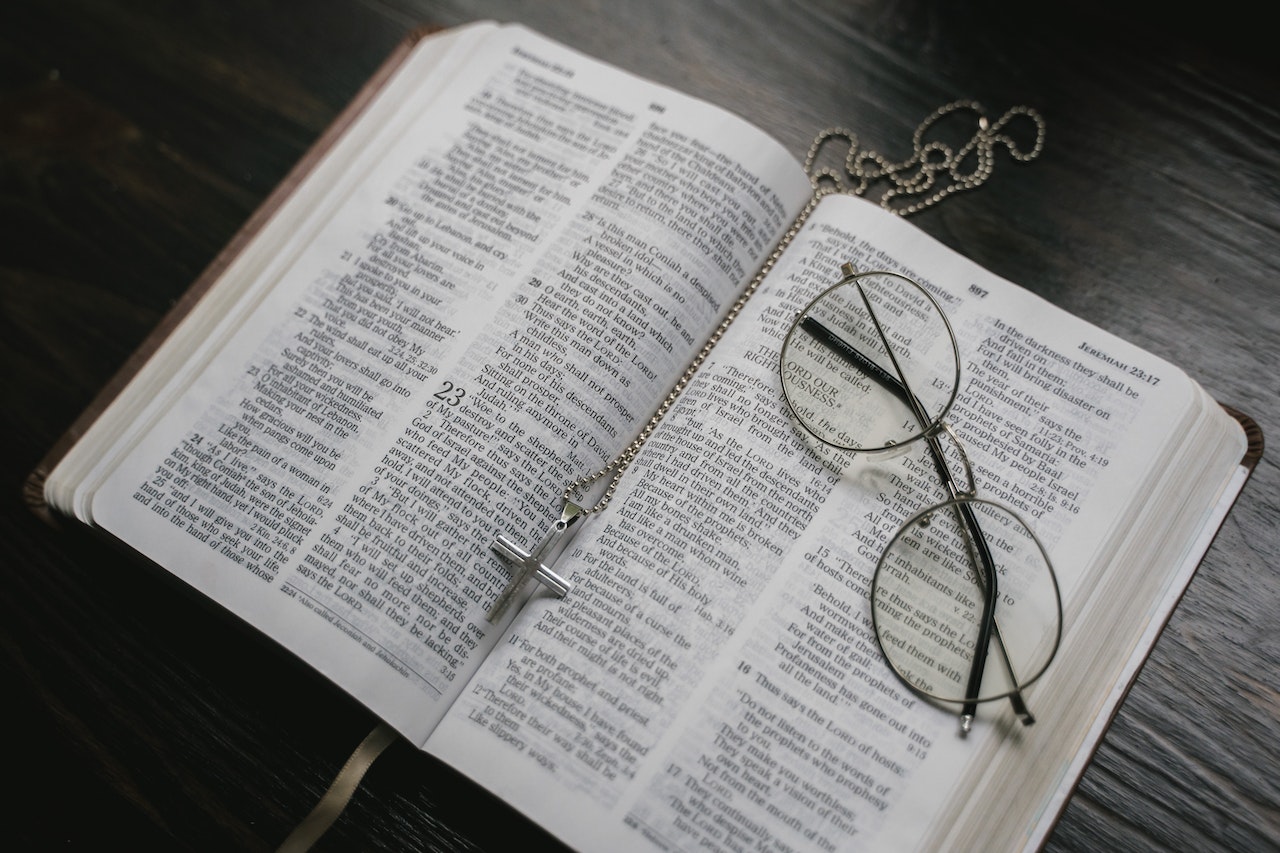Orthodox Christianity and Protestantism are two major branches of Christianity that have distinct beliefs and practices. While both share a common foundation in the teachings of Jesus Christ, they differ in terms of their historical development, theological perspectives, and worship traditions. This introduction aims to provide a brief overview of the key differences between Orthodox Christianity and Protestantism.
Table of Contents
History and Origins of Orthodox Christianity and Protestantism
Orthodox Christianity and Protestantism are two major branches of Christianity that have shaped the religious landscape for centuries. Understanding the history and origins of these two branches is essential to grasp the differences and similarities between them.
Orthodox Christianity traces its roots back to the early days of Christianity, when the apostles spread the teachings of Jesus Christ. The term “Orthodox” comes from the Greek word “orthodoxia,” meaning “right belief.” The Orthodox Church believes in preserving the original teachings and traditions of the early Christian Church, emphasizing the importance of apostolic succession and the authority of the bishops.
The origins of Protestantism, on the other hand, can be traced back to the 16th century Reformation. The Reformation was a movement led by Martin Luther, John Calvin, and other reformers who sought to challenge the authority and practices of the Roman Catholic Church. Protestants believe in the primacy of the Bible as the ultimate authority in matters of faith and reject certain Catholic doctrines and practices.
While Orthodox Christianity has its roots in the early days of Christianity, Protestantism emerged as a response to perceived corruption and abuses within the Catholic Church. The Protestant Reformation was a time of great upheaval, with reformers challenging the authority of the Pope, advocating for the translation of the Bible into vernacular languages, and promoting the idea of salvation through faith alone.
One key difference between Orthodox Christianity and Protestantism lies in their understanding of authority. Orthodox Christians believe in the authority of the bishops and the consensus of the Church Fathers, while Protestants emphasize the authority of the Bible and individual interpretation. This difference in authority has led to variations in doctrine and practice between the two branches.
Another significant difference is the role of tradition. Orthodox Christianity places a strong emphasis on preserving the traditions and practices of the early Church, while Protestantism tends to be more open to adaptation and change. This can be seen in the liturgical practices of the Orthodox Church, which have remained largely unchanged for centuries, compared to the diverse worship styles found within Protestantism.
Despite these differences, both Orthodox Christianity and Protestantism share a common belief in the central tenets of Christianity, such as the divinity of Jesus Christ, the importance of salvation, and the belief in the Holy Trinity. Both branches also have a rich history of theologians, scholars, and saints who have contributed to the development of Christian thought and practice.
In conclusion, the history and origins of Orthodox Christianity and Protestantism provide valuable insights into the differences and similarities between these two branches of Christianity. While Orthodox Christianity traces its roots back to the early days of Christianity, Protestantism emerged as a response to the perceived corruption within the Catholic Church. Understanding these historical contexts helps us appreciate the distinct beliefs and practices of each branch, while also recognizing the common ground they share as followers of Jesus Christ.
Key Beliefs and Doctrines in Orthodox Christianity and Protestantism

Orthodox Christianity and Protestantism are two major branches of Christianity that have distinct beliefs and doctrines. While both share a common foundation in the teachings of Jesus Christ, they differ in their interpretations and practices. In this article, we will explore the key beliefs and doctrines in Orthodox Christianity and Protestantism, highlighting their similarities and differences.
Orthodox Christianity, also known as Eastern Orthodoxy, traces its roots back to the early Christian Church. It places a strong emphasis on tradition and the authority of the Church. Orthodox Christians believe in the Holy Trinity, consisting of God the Father, God the Son (Jesus Christ), and God the Holy Spirit. They believe that Jesus Christ is the Son of God who became incarnate to save humanity from sin.
Protestantism, on the other hand, emerged as a result of the Protestant Reformation in the 16th century. It emphasizes the authority of the Bible and the individual’s direct relationship with God. Protestants believe in the concept of salvation through faith alone, rejecting the idea of salvation through good works. They believe that Jesus Christ is the only way to salvation and that individuals can have a personal relationship with Him.
One of the key differences between Orthodox Christianity and Protestantism lies in their views on the authority of the Church. Orthodox Christians believe in the authority of the Church, which they see as the guardian and interpreter of the Scriptures. They believe that the Church has the power to preserve and transmit the true teachings of Christ. Protestants, on the other hand, emphasize the authority of the Bible as the ultimate source of truth. They believe that individuals have the right to interpret the Scriptures for themselves.
Another significant difference is the approach to worship and sacraments. Orthodox Christians have a rich liturgical tradition, with elaborate rituals and sacraments. They believe that the sacraments, such as baptism and the Eucharist, are essential for salvation and convey God’s grace. Protestants, on the other hand, have a more simplified approach to worship, focusing on preaching and the reading of the Bible. They believe that the sacraments are symbolic acts that serve as reminders of Christ’s sacrifice.
Despite these differences, there are also areas of common ground between Orthodox Christianity and Protestantism. Both believe in the divinity of Jesus Christ and the importance of His death and resurrection for salvation. They also share a belief in the existence of heaven and hell, as well as the second coming of Christ.
In conclusion, Orthodox Christianity and Protestantism have distinct beliefs and doctrines that shape their practices and traditions. While Orthodox Christianity places a strong emphasis on tradition and the authority of the Church, Protestantism emphasizes the authority of the Bible and the individual’s direct relationship with God. Despite their differences, both branches of Christianity share a common foundation in the teachings of Jesus Christ and the belief in salvation through Him. Understanding these key beliefs and doctrines can help foster a greater appreciation for the diversity within Christianity and promote dialogue and understanding among believers.
Worship Practices and Rituals in Orthodox Christianity and Protestantism
Orthodox Christianity and Protestantism are two major branches of Christianity that have distinct worship practices and rituals. While both share a common belief in Jesus Christ as the Son of God, their approaches to worship differ in several ways. In this article, we will explore the worship practices and rituals in Orthodox Christianity and Protestantism, highlighting their similarities and differences.
In Orthodox Christianity, worship is characterized by its rich liturgical tradition. The Divine Liturgy, the central act of worship, is a solemn and reverent service that follows a prescribed order. The use of icons, religious paintings that depict Christ, the Virgin Mary, and saints, is an integral part of Orthodox worship. These icons are venerated and serve as a means of connecting with the divine. The use of incense, candles, and chanting further enhances the spiritual atmosphere during worship.
Protestant worship, on the other hand, is often more informal and less structured. While some Protestant denominations do have liturgical elements, many emphasize spontaneity and personal expression in worship. The sermon, or preaching of the Word, takes center stage in Protestant worship services. The focus is on the Bible as the ultimate authority, and the sermon is seen as a means of teaching and inspiring the congregation. Hymns and contemporary worship songs are commonly sung, accompanied by musical instruments.
Another notable difference between Orthodox Christianity and Protestantism lies in the sacraments or ordinances observed during worship. In Orthodox Christianity, there are seven sacraments, including baptism, chrismation, and the Eucharist. These sacraments are believed to convey God’s grace to the faithful. The Eucharist, also known as the Holy Communion, is considered the most important sacrament and is celebrated in every Divine Liturgy.
In contrast, Protestantism generally recognizes only two sacraments: baptism and the Lord’s Supper. While the significance of these sacraments may vary among different Protestant denominations, they are seen as symbolic acts rather than channels of divine grace. Baptism is viewed as a public declaration of faith and a symbol of spiritual rebirth, while the Lord’s Supper commemorates Jesus’ Last Supper with his disciples.
Both Orthodox Christianity and Protestantism place a strong emphasis on prayer in their worship practices. However, the style and content of prayer may differ. In Orthodox Christianity, prayers are often formal and scripted, with a focus on the intercession of saints. The Jesus Prayer, a short repetitive prayer, is also commonly used as a means of contemplation and spiritual connection. In Protestantism, prayers are often spontaneous and personal, reflecting the individual’s relationship with God. Congregational prayer is also an important aspect of Protestant worship, with members praying together for various needs and concerns.
Despite their differences, Orthodox Christianity and Protestantism share a common goal in worship: to honor and glorify God. While Orthodox worship may be more traditional and liturgical, and Protestant worship more contemporary and informal, both seek to create an atmosphere of reverence and devotion. Whether through the use of icons and incense or through heartfelt prayers and uplifting music, worship in both traditions serves as a means of connecting with the divine and deepening one’s faith.
In conclusion, the worship practices and rituals in Orthodox Christianity and Protestantism reflect their distinct theological and cultural backgrounds. While Orthodox Christianity emphasizes liturgy, icons, and sacraments, Protestantism focuses on preaching, personal expression, and symbolic acts. Despite these differences, both traditions share a common commitment to worshiping God and nurturing the spiritual growth of their respective communities. Whether one finds solace in the ancient traditions of Orthodox Christianity or the contemporary expressions of Protestantism, the ultimate goal remains the same: to draw closer to God and experience His presence in worship.
Differences in Church Structure and Authority between Orthodox Christianity and Protestantism
Orthodox Christianity and Protestantism are two major branches of Christianity that have distinct differences in their church structure and authority. These differences can be seen in the way they organize their churches, the role of clergy, and the source of authority within their respective traditions.
In Orthodox Christianity, the church structure is hierarchical and centralized. The highest authority in the Orthodox Church is the Patriarch or the Metropolitan, who is responsible for overseeing the entire church. Underneath the Patriarch, there are bishops who are in charge of specific regions or dioceses. Each bishop is responsible for the spiritual well-being of the faithful within their jurisdiction. This hierarchical structure ensures unity and consistency in the teachings and practices of the Orthodox Church.
On the other hand, Protestantism has a more decentralized church structure. There is no central authority figure like the Patriarch in Orthodox Christianity. Instead, each Protestant denomination or church is autonomous and has its own governing body. This means that each church or denomination is responsible for its own decision-making processes and can have different interpretations of the Bible and theological beliefs. This decentralized structure allows for more flexibility and diversity within Protestantism.
Another difference between Orthodox Christianity and Protestantism is the role of clergy. In Orthodox Christianity, the clergy play a central role in the church. They are seen as mediators between God and the faithful and are responsible for performing sacraments and leading worship services. The clergy are ordained through a process that involves rigorous training and education. They are expected to live a life of celibacy and are often seen as spiritual guides and mentors to the faithful.
In contrast, Protestantism has a more egalitarian view of the clergy. While some Protestant denominations have ordained clergy, others believe in the priesthood of all believers, which means that every believer has direct access to God and can serve as a minister. This means that in Protestant churches, the role of clergy can vary greatly. Some churches may have pastors who lead worship services and perform sacraments, while others may have lay leaders who take on these roles. This diversity in the role of clergy reflects the emphasis on individual interpretation and personal relationship with God in Protestantism.
The source of authority is another key difference between Orthodox Christianity and Protestantism. In Orthodox Christianity, the ultimate authority is the Holy Tradition, which includes the teachings of the early Church Fathers, the decisions of the Ecumenical Councils, and the liturgical practices of the Church. The Bible is also considered authoritative, but it is interpreted within the context of the Holy Tradition. This means that the interpretation of the Bible is guided by the teachings and practices of the early Church.
In Protestantism, the Bible is the sole authority. The principle of sola scriptura, or “Scripture alone,” is central to Protestant theology. This means that the Bible is seen as the ultimate source of truth and authority, and it is up to each individual believer to interpret the Bible for themselves. This emphasis on individual interpretation has led to a wide range of theological beliefs and practices within Protestantism.
In conclusion, Orthodox Christianity and Protestantism have distinct differences in their church structure and authority. Orthodox Christianity has a hierarchical and centralized structure, with a Patriarch or Metropolitan as the highest authority. The clergy play a central role in the church, and the ultimate authority is the Holy Tradition. In contrast, Protestantism has a decentralized structure, with each church or denomination being autonomous. The role of clergy can vary, and the Bible is seen as the sole authority. These differences reflect the diverse approaches to church organization and authority within these two branches of Christianity.
Conclusion
In conclusion, Orthodox Christianity and Protestantism are two distinct branches of Christianity with significant theological and historical differences. Orthodox Christianity emphasizes tradition, sacraments, and the authority of the Church, while Protestantism places a greater emphasis on individual interpretation of scripture and salvation through faith alone. These differences have led to variations in worship practices, church structure, and theological beliefs. Despite their differences, both Orthodox Christianity and Protestantism have played significant roles in shaping the history and development of Christianity.
For licensing reasons, we must provide the following notice: This content was created in part with the help of an AI.


